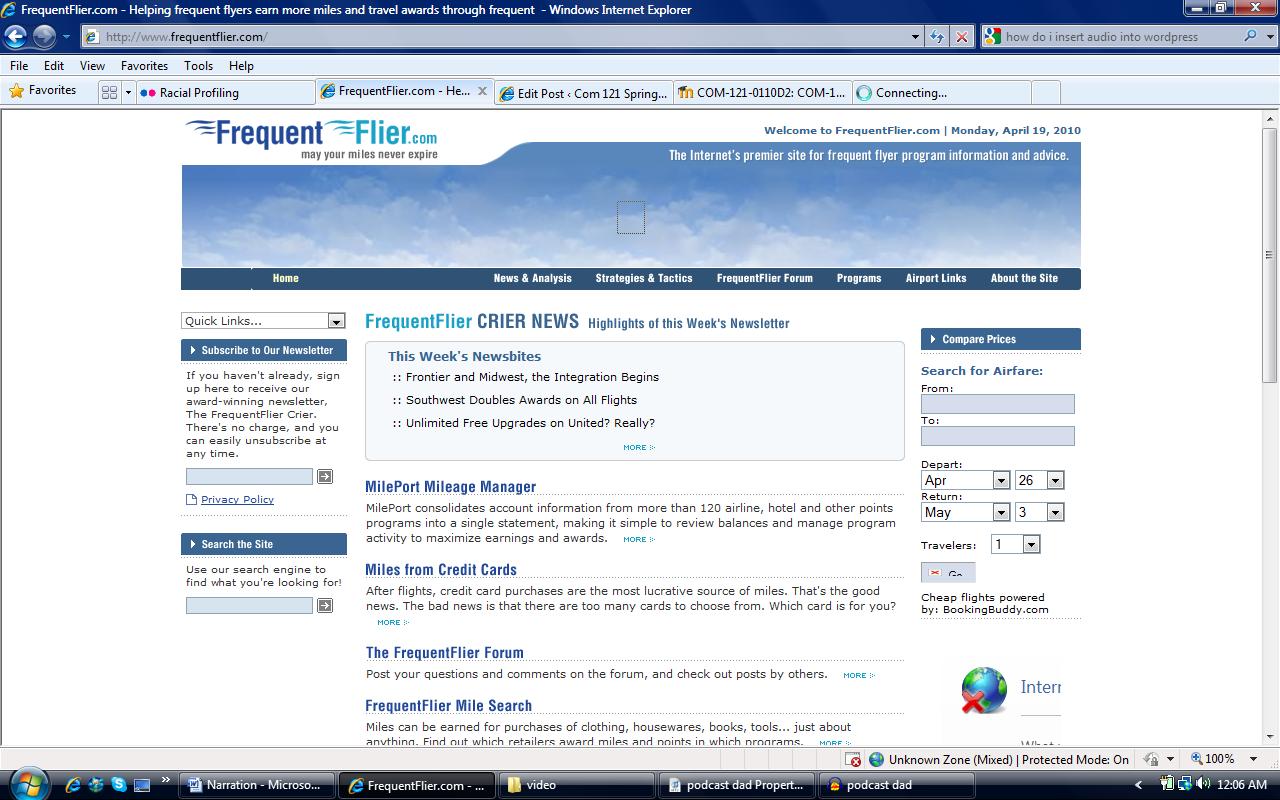Over my last blog posts, I’ve discussed many of the security measures in place to keep air passengers safe, and the efforts of many domestic airports to keep up with the ever-advancing security technology. What many people wonder is, are these measures sufficient defense against the evolving threats of home-grown and foreign terrorists?

In my last post, I talked with Kelly, a college student, about how the security measures in place sometimes discourage her from flying. Although there are some people in the US, and around the world who have no choice but to use air travel to do business. Many of these men and women travel hundreds of miles in a day and fly multiple times per week. Although security measures may deter a college student from flying, business people such as these constantly deal with the fear and inconveniences of air travel.
Listen to hear the opinions of one such businessman
Not only do airports endeavor to protect us through the use of new technology and advanced machine, but people also make up part of aviation security teams on airplanes and in airports. Federal Air Marshals is one such group. The TSA website says about federal air marshals, “they blend in with passengers and rely on their training, including investigative techniques, criminal terrorist behavior recognition.” This description gets one to thinking what exactly “criminal terrorist behavior recognition” means?
I discussed in my first blog post how the September 11th terrorist attacks were the motivating factor behind putting new security measures in place and in my last post, I would like to discuss how after the September 11th attacks, profiling became a widespread issue with many air passengers and in many airports around the world.

